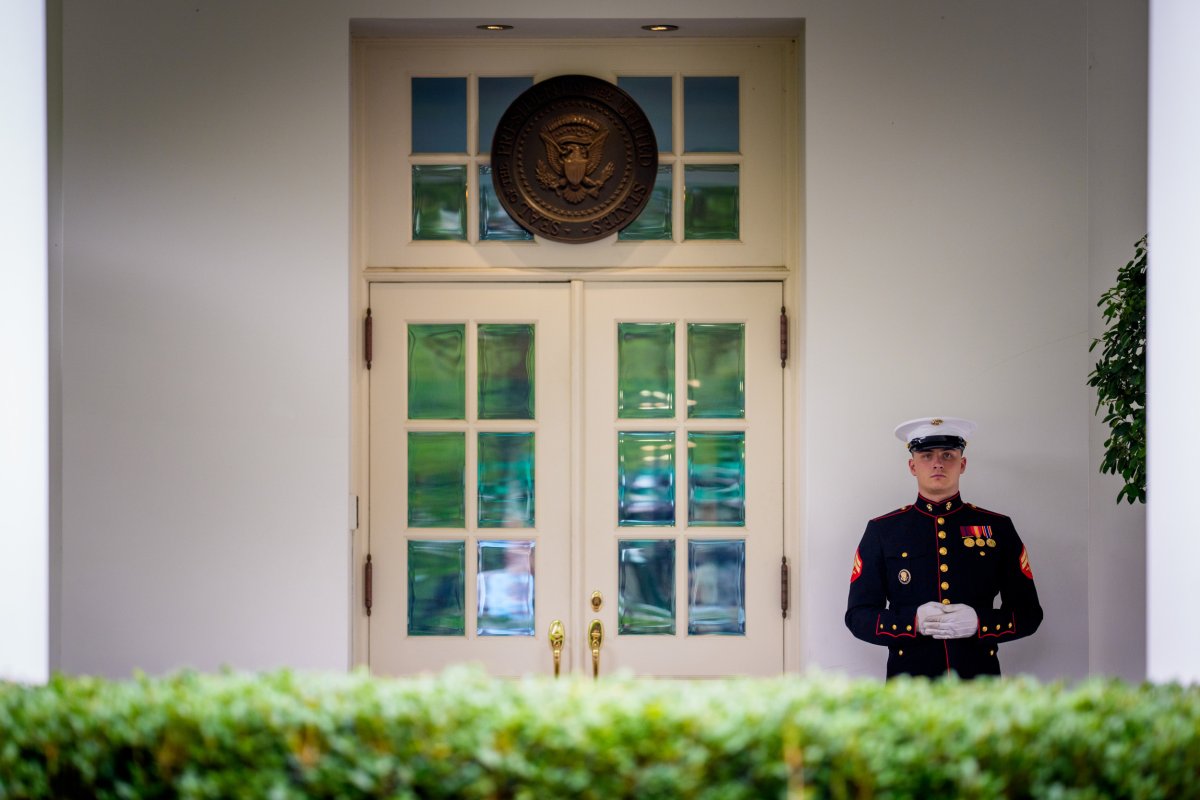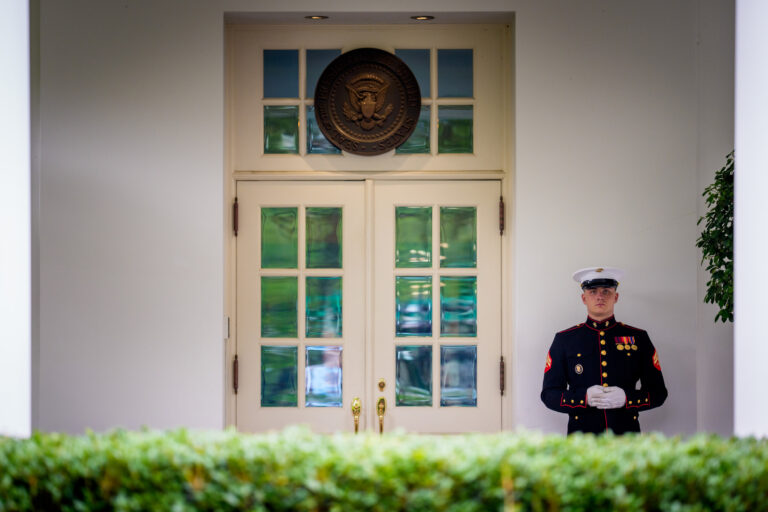President Donald Trump entered office vowing to bring a swift end to the wars in Gaza and Ukraine. Five months in, foreign conflicts are now threatening to overshadow Trump’s second term as a new war escalates between Israel and Iran and concerns grow that the United States could soon take an active role in fighting Tehran.
Trump referred to himself as an anti-war president upon his return to the White House and even argued that his efforts to broker peace around the world deserved a Nobel Peace prize.
But the Israel-Iran conflict has highlighted Trump’s challenge in shaping foreign affairs while maintaining political support at home with the isolationist and ascendent MAGA wing of the Republican Party.
“Trump has found that making peace is hard,” said Richard Gowan, the UN director of the International Crisis Group.

Andrew Harnik/Getty Images
That reality has quickly set in as Trump considers what role the U.S. should play in the strikes Israel launched against Iran last week to end Tehran’s nuclear program. Israel has targeted Iran’s nuclear enrichment facilities, including the fortified site at Fordow, but most experts believe it can’t destroy the underground compound without special U.S. bunker-busting bombs that can only be flown by American military aircraft.
“In the case of Iran, if the U.S. goes in that would be a massive show of military force,” Gowan said. “But it could also end up with Trump getting sucked into a Middle East quagmire, which is exactly what he accused his predecessors of doing.”
Trump signaled Tuesday that the U.S. may join Israel in a direct strike against Iran, though he has also said that Tehran still wants to strike a nuclear deal with the U.S. despite missing a recent White House-imposed deadline to reach an agreement.
In social media posts throughout the day, Trump called for Iran’s “unconditional surrender” and suggested that Iran’s supreme leader, Ayatollah Ali Khamenei, could be targeted for assassination.
“We are not going to take him out (kill!), at least for now,” Trump said Tuesday in one message on Truth Social, suggesting the U.S. knows his location.
The threat is a contrast from Trump’s rhetoric in his first weeks back in the White House, when he promised to make good on a campaign pledge to disentangle America from foreign conflicts even as he launched trade wars that roiled the global economy.
Trump touted the start of peace negotiations between Russia and Ukraine as an early victory, but the talks have since failed to make any significant progress toward ending that war. Israel ramped up its military operations in Gaza in the months since Trump took office, coinciding with an increase in violent conflicts on Trump’s watch, according to a report released Tuesday by the Institute for Economics & Peace.

Stringer/Getty Images
There are 59 active conflicts between nation states, an increase from last year and the most since World War II, according to the institute’s 2025 Global Peace Index.
Of course, Trump isn’t the first U.S. president to see his domestic agenda updated by foreign affairs beyond his control. Trump’s recent predecessors — from former Presidents George W. Bush to Joe Biden — also became directly or indirectly enmeshed in foreign wars. But Trump’s situation is somewhat unique, given the growing foreign policy divide among lawmakers in his own party.
Joining Israel’s fight with Iran would anger MAGA hardliners and drive a wedge between them and establishment Republicans who want Tehran to end its push to develop nuclear weapons.
“Trump’s supporters are in different places. Some, like [Rep.] Marjorie Taylor Greene, are saying you can’t be part of Make America Great Again if you go to war in the Middle East,” said Daniel Byman, the director of the Warfare, Irregular Threats, and Terrorism Program at the Center for Strategic and International Studies. “But other voices in the Republican Party see Iran’s nuclear program as a major threat to U.S. national security.”
Beyond the domestic politics, Trump’s calculus is further complicated by Israel’s increasingly aggressive posture towards Iran.
Israel may not be willing to back down if the U.S. pushes for a quick end to hostilities to avoid a broader regional war, Middle East analysts who spoke to Newsweek said. And there is no guarantee Trump could swiftly end the conflict by having the U.S. join Israel in the war, said Brian Katulis, a senior fellow at the Middle East Institute.
“When a country has spent years enriching uranium like Iran has, you need some sort of diplomatic agreement that leads to mechanics verifying that everything has been locked down or destroyed,” Katulis said. “There’s no fool-proof military solution.”


